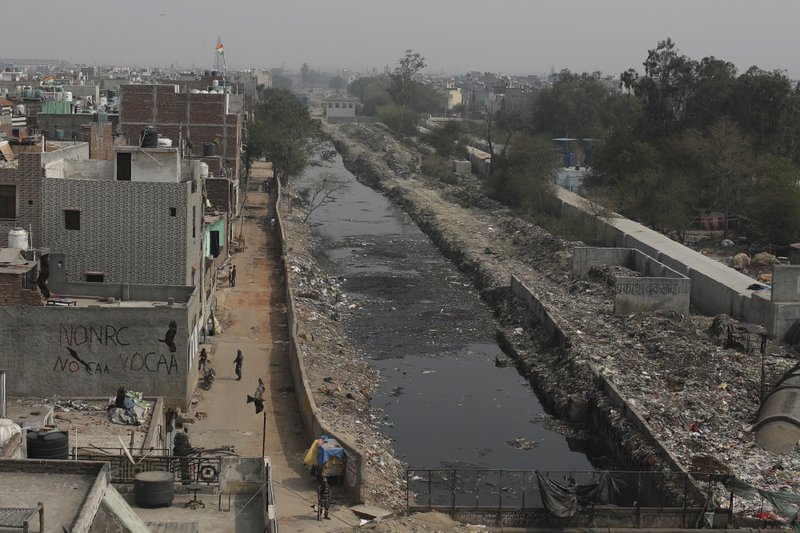NEW DELHI -- Muslims in a northeastern neighborhood of India's capital returned for weekly prayers at fire-bombed mosques on Friday, two days after a 72-hour clash between Hindus and Muslims that left at least 40 dead and hundreds injured.
Meanwhile in Bangladesh, several thousand Muslims marched from the main mosque in the capital Friday to denounce India's government for allegedly inflaming tensions between the two groups.
After Friday prayers, thousands more Muslims left the Baitul Mokarram Mosque in Dhaka, Bangladesh, and joined the rally, chanting slogans against Indian Prime Minister Narendra Modi.
They threw stones at posters of Modi and burned a portrait of him. Many of the protesters carried banners saying, "Stop killing Muslims" and "Save Indian Muslims."
Five days after the riots in India started, authorities have not said what sparked the worst communal violence in New Delhi in decades. Hospitals were still trying to identify the dead as the toll continued to rise, and residents of the areas affected by the riots were still seeking loved ones.
Tensions between Hindu hard-liners and Muslims protesting the Hindu-first policies of Modi's government had been building for months when the violence occurred Sunday night.
The passage of a citizenship law in December that fast-tracks naturalization for some religious minorities from neighboring countries but not Muslims earlier spurred protests across India.
Kapil Mishra, a local leader of Modi's Bharatiya Janata Party who lost his Delhi state assembly seat in recent elections, demanded at a rally Sunday that police shut down a Muslim-led protest in the city or else he and his followers would do it themselves.
Hindus and Muslims attacked one another with guns, swords, metal rods and axes, leaving the streets where the rioting occurred resembling a war zone.
Al-Hind hospital, a small clinic with two doctors, was the nearest medical facility for many of the victims. When the riots broke out, it turned into a chaotic emergency ward, its doctors dealing for the first time with injuries such as gunshot wounds, crushed skulls, stabbings and torn genitals.
Religious tensions in the area where the clashes occurred still simmered on Friday, tempered by a heavy police presence.
Indian government spokesman Raveesh Kumar denied the Modi government had inflamed religious tensions and failed to protect Muslims.
The protesters in Bangladesh also demanded that Prime Minister Sheikh Hasina cancel a plan to invite Modi to a commemoration next month of the 100th anniversary of the birth of independence leader Sheikh Mujibur Rahman.
Rahman, Hasina's father, led a political movement that created the separate nation of Bangladesh after a nine-month war with what is now Pakistan in 1971.
"I ask the prime minister to immediately cancel Narendra Modi's invitation," Nur Hossain Kasemi of the influential Islamist group Hefazat-e-Islam told the protesters. "If she fails to do so, the people of the country will be forced to take action and surround the airport. They will build resistance."
But he asked Bangladeshi Muslims not to harm Hindus.
Information for this article was contributed by Anirrudha Ghosal of The Associated Press.
A Section on 02/29/2020
